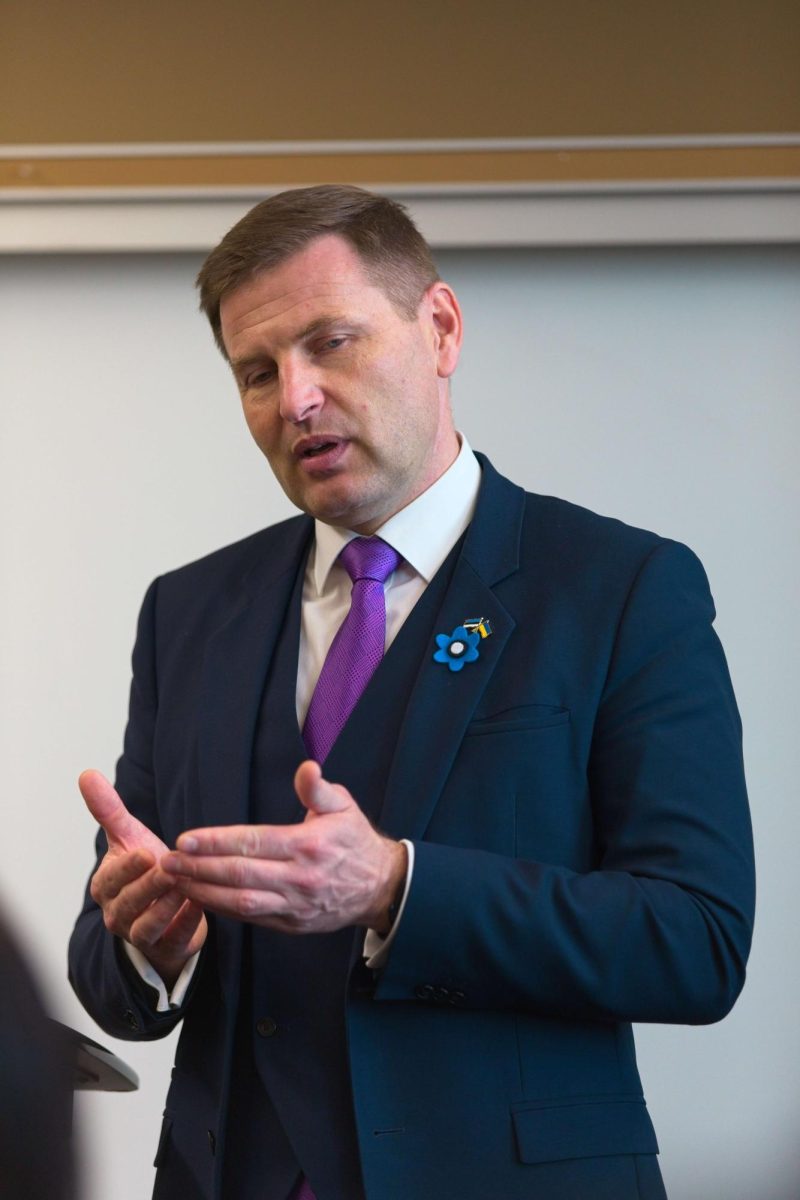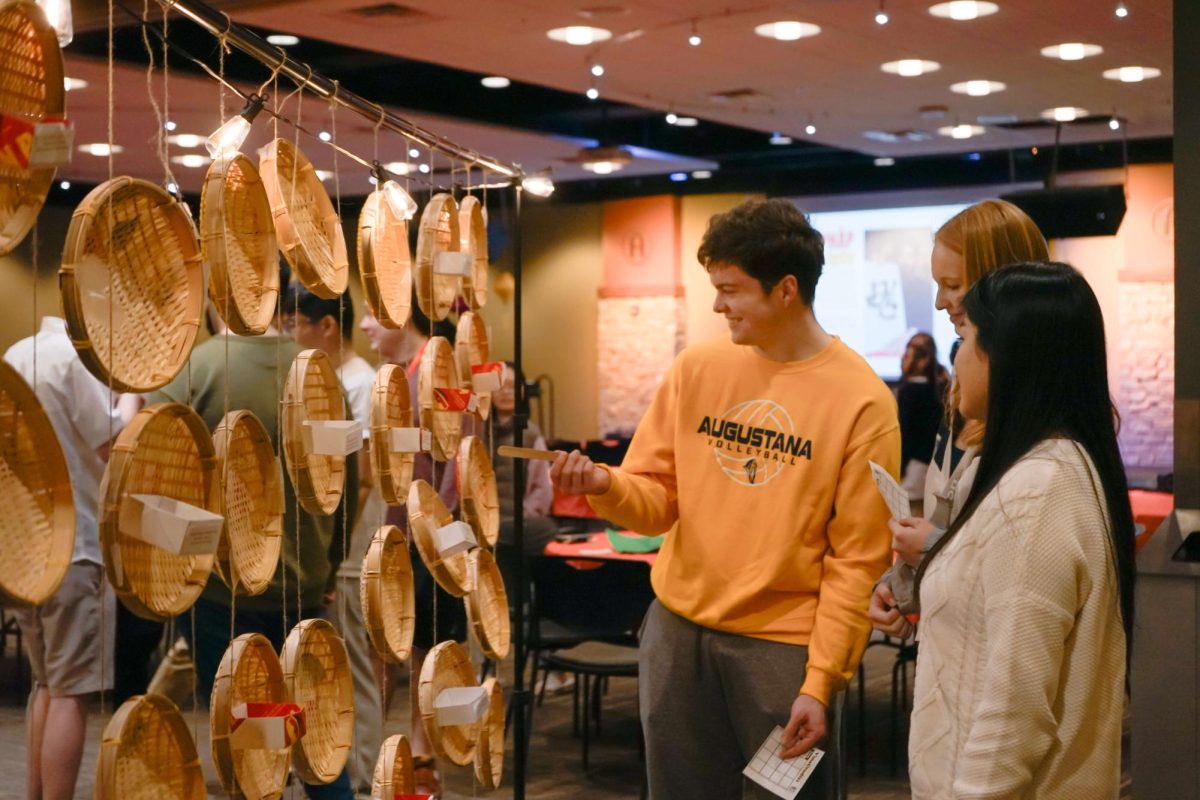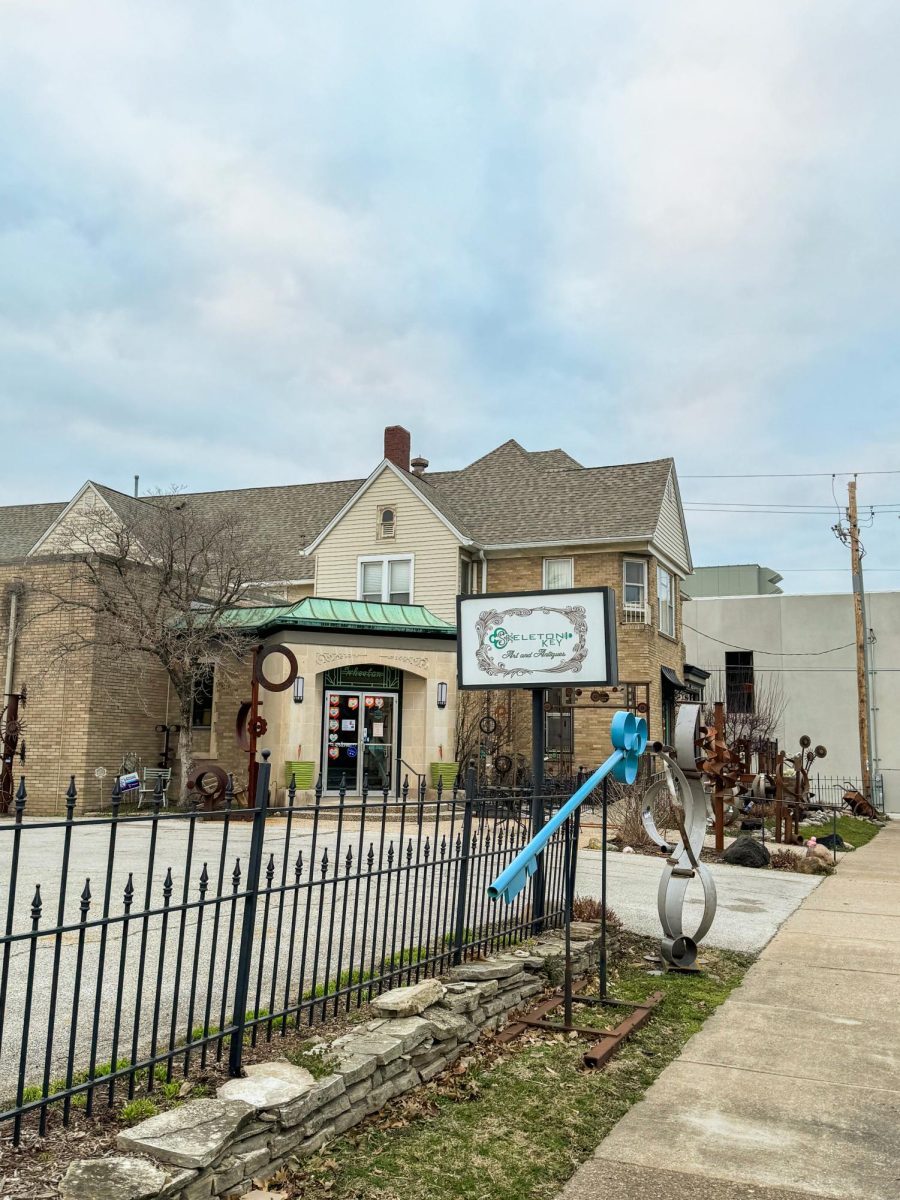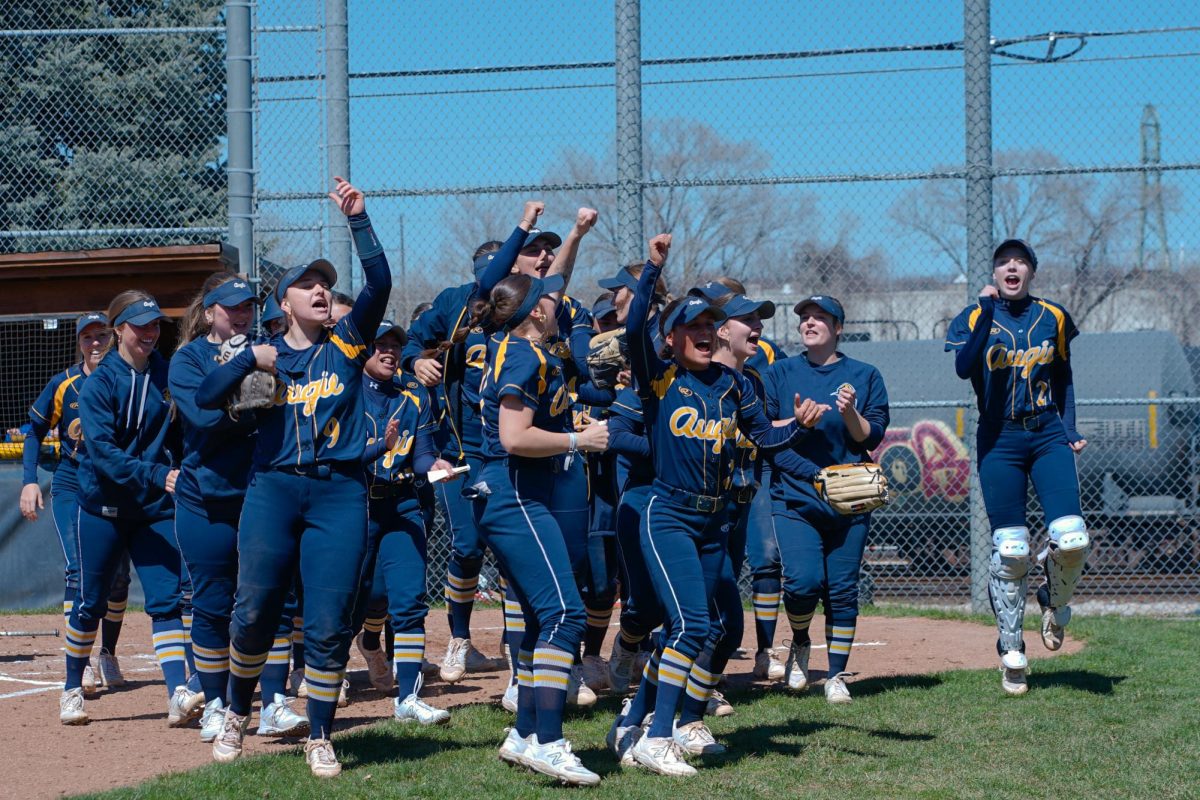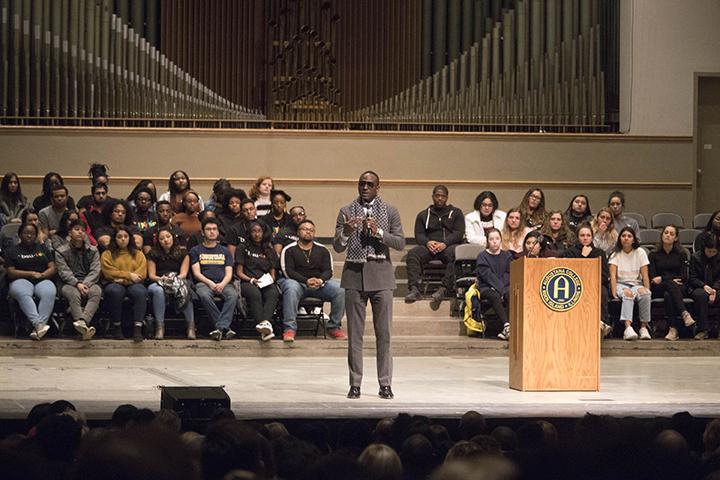Dr. Yusef Salaam is one of five men that were wrongly convicted of sexual assault in Central Park in 1989. Salaam spoke about his experiences at Centennial Hall on March 7 for a sold-out crowd.
Salaam’s case involves five other innocent men, all given sentences ranging from 5-15 years. The case gradually gained public recognition and the group became known as the Exonerated 5. The case is also known as the Central Park jogger case, and continues to be one of the most publicised cases of the time.
Working as a public speaker, Salaam travels to various venues sharing his experience with others and educating people on topics that have less public acknowledgement.
Salaam called for change in his talk on March 7, particularly regarding the faults of the criminal justice system. He highlighted how jail or death is a lingering fear for minorities in the United States. The audience consisted of students, staff and members of the Quad City community.
Spiret Rogers is a high school student from Rock Island who came with her family to the event. She said she felt that the event was very impactful and will cause changes in the people who listened.
“What I got from it was, ‘Whenever you’re knocked down, just get back up.’ Try your hardest. I think it lets people know that being black doesn’t define you,” Rogers said.
Snap judgments based on appearance were another recurring theme throughout Salaam’s speech. Salaam spoke about how courtroom artist Marilyn Church, in place of a photographer, portrayed the Exonerated 5 in a negative light. He said that the artist took their humanity away in the way she drew them.
“She said oftentimes when we showed our faces, our faces was filled with hate and anger at a system in regards to what they’d been doing to us,” Salaam said. “That she was capturing. And when she would draw us we would look like monsters. We would look like animals.”
Perceptions can play a big role in the outcome of a case, he continued to explain in the speech.
“[Marilyn Church] said that she was filled with regret about how she had drawn us because she felt like the way she drew us was one of the doors that they used to convict us,” Salaam said.
Sophomore Bereket Aragaw is an international student and felt moved by Salaam’s words as well.
“I’m taking a business class and in that class, they teach us how to be interviewed. How to dress to go to the interview. Because now they’re making the clothes that I’m wearing more [important] than the things I’m going to say,” Aragaw said.
Salaam’s speech highlighted the racial divide in America, not just in the justice system but in our daily interactions. Some students felt like this could apply to the social dynamics at Augustana.
“International students probably are friends with international students and domestic students have domestic friends or roommates, and that has to change,” Aragaw said. “Because now, we don’t want the police to treat us for our skin color, but we’re doing it with our friends. We’re choosing friends because they speak the same language as we do and it doesn’t have to be that way. It starts from the little things and then escalates.”
Ashley Allen is the assistant director of the Office of Student Inclusion and Diversity (OSID), and Michael Rogers is the director of OSID. OSID helped host Salaam with the goal of sharing his experience with racial injustice to the community.
“We know you’re different, but that doesn’t make you less valuable,” Allen said. “You are unique, and we want to celebrate where you come from and who you are.”
OSID hopes to encourage individuality in students by running the culture houses and hosting various programs such as PACE and the Multicultural Programming Board.
Besides providing resources, they hoped to inspire students with an inspirational figure. OSID’s goal was to share issues with Augustana and the community as a whole that would normally be swept under the rug.
“I’m sure hearing the story of Dr. Yusef Salaam will challenge you to think deeper about our criminal justice system and how something like this could happen, and ways we can interrupt that,” Rogers said.


